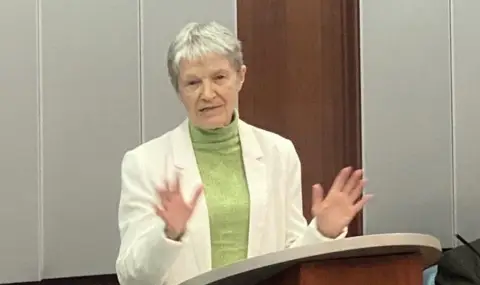In order to assess what Putin has done in his long rule, there must be some completion. It can only be assessed after he ceases to rule Russia.
This was told to the Bulgarian National Radio by historian Prof. Iskra Baeva.
"What Putin undoubtedly did was to centralize the state and prevent those processes that had begun under Yeltsin - separation of parts. Now this state has been centralized with a strong fist and more Russians feel part of a large state; a state that has returned to the international arena."
In her words, this new role of Russia gives Russians the self-confidence that they can do without the rest of the world.
"The state interest is increasingly coming to the fore. This is nationalism, but it is not ethnic, but state-based," she emphasized, pointing out that Putin is one of the brightest figures of this trend, along with Erdogan, Xi Jinping, and Orban.
Drawing a parallel with Trump's return to the White House and the reasons for his victory again, Prof. Baeva also looked to Europe:
"In European countries, on the one hand, we see democratic countries that are shaking with problems, and on the other - countries where the local leader has firmly grasped power and has ruled for a long time with authoritarian tendencies. It seems that people in democratic countries where there is instability express greater dissatisfaction."
Now democracies that cannot function in a way that makes their citizens feel satisfied are under threat, the historian reports.
Poland had strongly embarked on the path of authoritarianism, but managed to turn around. However, the turnaround does not seem permanent. In order to be able to deal with "Law and Justice", they had to unite everyone, she noted.
At the beginning of his rule, in the first decade, Putin was pro-Western – until 2007. What happened is the result of mutual disappointment – on both sides, commented Prof. Iskra Baeva in the program "Saturday 150".
Russia's weakness led to the desire – a little more crudely, more drastically, on the part of the West - the so-called near abroad to join Western structures. The desire of these regions to seek an independent path of development took shape as a threat to Putin. 2007 he outlined the perimeter of Russia, she explained.
What the Ukrainian authorities did not do was turn Ukraine into a unified state. There, this division between East and West not only did not cease, but deepened, the historian believes.
"It is not 2022. The road is long. The Minsk agreements turned out to be a temporary truce, because no one had the intention to implement them."
Will the negotiations on Ukraine turn into real diplomacy - in the 21st century, the situation is returning in which the state interest is important, not the diplomacy of values, said Prof. Baeva, recalling that agreements between the larger ones are often made at the expense of the smaller ones.
